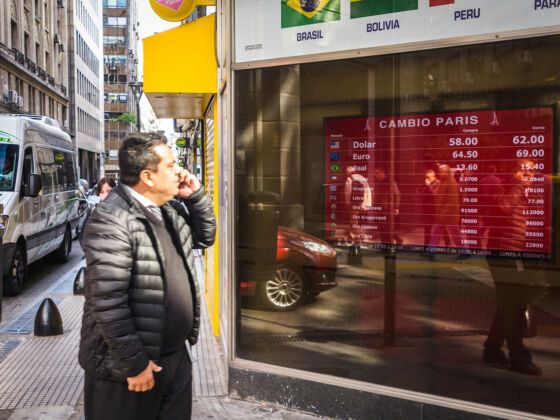Travelers can either be driven crazy by the economic situation in Argentina or they can (like the locals) take advantage of it. The key is to befriend the magical dólar blue, Argentina’s underground currency market.
Most countries only have one exchange rate, yet the Argentine peso is special — it has two. Yeah, it’s weird. The peso exists in parallel forms, the official rate and the unofficial rate. The unofficial rate, or em>dólar blue, is the black market value. Every time you trade a dollar on the black market you receive way more in pesos than you would if you had traded dollars at the official rate.
